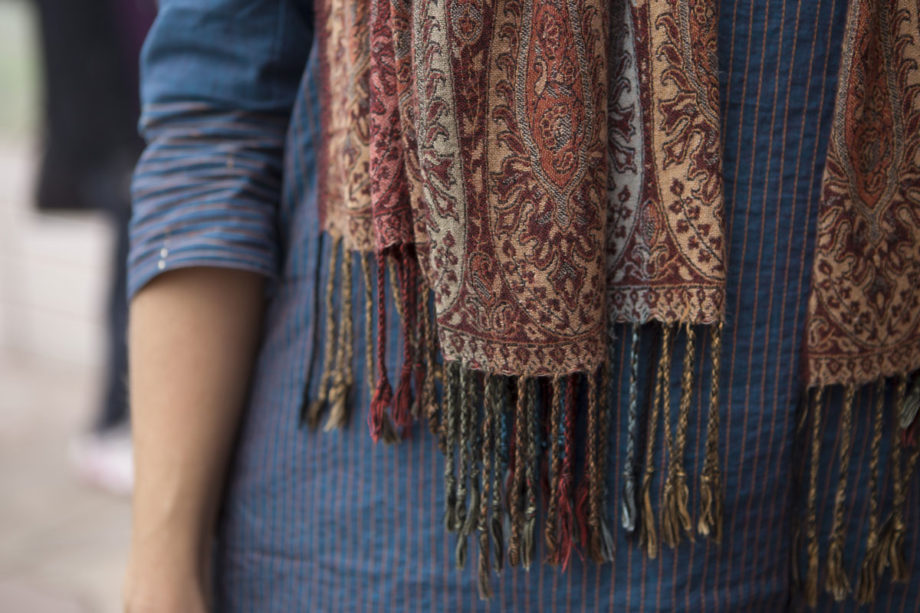“Foreigner!”
“White person!”
“Look how she is veiled!”
In case I ever forget, these are the constant reminders that I am the “other”.
“A foreigner, dressed like one of us!”
These words are rarely ever hostile. Usually, they are served as an awkward greeting or an expression of genuine surprise.
I’ve been living with my local family for a year now. Every day I thank God for this wonderful family. They are kind, loving, and generous towards me and towards each other.
I am sure they are completely baffled by my life: a single woman, living outside her father’s household, going to work every day. Unmarried women in my host country do not leave the family home and usually don’t have jobs. However, they do know how to make tea, hibiscus juice, and hand-rolled couscous. The one time I made hibiscus juice, my host mom took a sip and promptly spat it out, exclaiming, “What’d you do to this?” So I leave the juice making to the local gals.
I have been the source of much comedy in our home, thanks to my linguistic blunders and naïveté. Sorry, but the difference between male and female sheep just isn’t that obvious to this city girl!
We’ve had disagreements, too. We’ve argued over electricity bills, over how long one has to knock on the front door before someone comes to open the door, over missing shoes and broken doors. The smallest miscommunication can snowball into an issue that could threaten the stability of our relationship. I try to avoid missteps in this delicate dance, but sometimes it just gets so wearisome.
“The Word became flesh and blood, and moved into the neighborhood,” – John 1:14, the Message.
My neighbors had never met a follower of Jesus before I started living with them. That makes being here such a sweet privilege.
Don’t misunderstand me. It is not a great place to live. It is a hot, dusty, colorless land. Western comforts are virtually non-existent. The open-air market where I buy my food offers little in the way of variety.
However, I love my local family and our neighborhood. We experience a lot together: illness, water shortages, dust storms, and slogging through mud and sewage during the monsoon season. In these shared experiences, the “foreigner” distinction melts away. We just get busy living life and enduring our common hardships together.
It is in these trials that my teammates and I demonstrate Christ’s peace and healing, freedom from fear, and the assurance of his faithfulness. Moreover, that is where our “foreignness” matters.
Yesterday at sunset, my host mom dumped her 2-year-old boy into my arms. “Watch him while I find his brother.” I took him up to our rooftop terrace and practiced all my best toddler-like Arabic with him. As dusk fell, I thanked God for my host family’s ability to trust me to be in their lives. No longer am I such a cultural foreigner to them. May the differences that remain—trust and freedom in the life of Christ Jesus—be the distinctive that draw them to the Father.
**This account comes from a long-term worker. Names and places have been changed for security.**
Original article: www.frontiersusa.org/blog/article/the-foreigner

